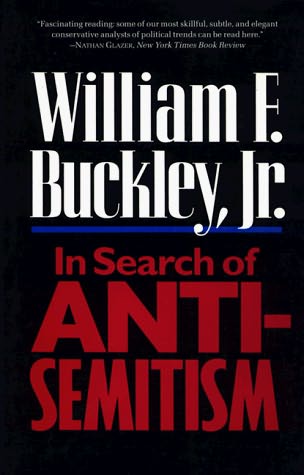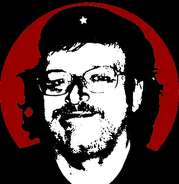
Oscar Corral's textbook story of 8 September 2006 about the Herald Moonlighters — "textbook" because it has been held up by more than one expert on journalistic ethics as an example of what
not to do when writing a so-called investigative report — did not appear first in
The Miami Herald, but on Castroite television, where a propagandist on
Mesa Redonda announced that
The Miami Herald would shortly be publishing a story about Cuban-Americans reporters in the pay of the U.S. government (as if Cuban viewers could go out and buy a copy of the newspaper hot off the presses). This revelation indicates one of two things — either the original story was fed by Castro operatives to Corral, or the Cuban government has one (or many) moles at
The Miami Herald who keep it apprised of upcoming stories that could be fodder for their propaganda mill. Indeed, if an Ana Belén Montes or a Juan Pablo Roque can infiltrate the Defense Intelligence Agency (DIA) or FBI are we to presume that
The Miami Herald is impenetrable? This is a question that
The Herald has never addressed because of the fear that any investigation would become a"witchhunt." It has no scrupples whatever about firing or libelling anti-Communist reporters because they are anti-Communist, but it trembles at the thought of exposing Cuban Communist agents on its staff because that might expose them to the charge of McCarthyism. Maybe the demented cartoonist who recently tried to stage a coup at
The Miami Herald was not so "demented," after all. In fact, I am sure that the first sign that Communism is about to fall in Cuba will be the departure en masse of its compromised staff members to redder venues, the
San Francisco Chronicle and such. But to return to Corral.
At best, Oscar Corral is a dupe to whom others feed what they want him to regurgitate, and at worst he is a dupe again who spills all he knows to the wrong people at
The Herald. I do not, however, believe that Corral is himself a mole: he is simply not intelligent enough and too conspicuously placed to function beyond suspicion, which would make him virtually useless. But whatever kind of dupe he is, having already fallen prey to Castro's agents in the past, Oscar hardly seems the ideal candidate to cover the Posada Carriles story, quite apart from the personal animus that he has already demonstrated towards his subject in his reportage.
Describing him in a April 20 article ["Posada in Miami, But He Can't Leave"] as "a ghost of his former self" — as what man is not at 80? — Corral cannot comprehend, because he does not share it, the spiritual greatness of the man, which has sustained Posada through this ordeal and others like it which would surely have broken lesser men (say Corral). Yes, this old man who has been kept in "preventive detention" for 2 years and shackled in waist and leg irons is none the better for wear, but he still lives despite the best efforts of the Castro agent who shot him in the face or the U.S. government's Bay-of-Pigs-like conduct towards one who fought for this country in 100 covert wars and Vietnam.
Corral is even shameless enough to throw Posada's honorable poverty at his face, as if that were not yet another patent of his greatness. What can it possibly matter to Posada that he must reside in an apartment in "a cookie-cutter development" in Kendall? In his wanderings through the world in the service of his country, and particularly in the last 2 years, Posada has surely endured a lot worse. Such a "punishment" — that is, to live in a "cookie-cutter development" in Kendall — is the worst that can befall any man from Corral's snobbish perspective and he is stupid enough to rub that in Posada's face!
The lowest blow, because low blows are Oscar's specialty, is when he sneers at Posada's reconciliation with a wife he has not seen in 30 years. Posada is a lucky man to have a spouse (or former spouse) who, after 30 years, understands at last his spiritual greatness. Martí himself was not as fortunate. But Corral, rather than be touched by this timeless love story, chooses to scoff at it, as if love were something that Posada could not give or receive.
Did I say the "lowest blow?" Now I am not certain since Corral goes on to question apropos of absolutely nothing Posada's disfiguring facial scars, which are the result of being shot in the face by a Castro agent: "Posada, who
says his facial scars are the result of an assassination attempt by Cuban agents..." Oh, he only
"says" that Castro's agents did it. Well, then, we must surely doubt it since Posada said it. Who THE HELL would shoot Posada in the face if not a Castro agent? Is Corral really that stupid or does he only challenge the origins of Posada's scars because he fears that these will actually make anyone feel sympathy towards him and understand the nature of the enemy he is fighting — one man against an entire apparatus of repression? (Incidentally, Castro's cartoonists also mock Posada's mutilated face in their portrayals of him).
To create the impression that Posada is isolated and viewed indifferently at best by his fellow Cuban exiles, Corral quotes only Posada's lawyer and former comrades in his defense, including one even older than Posada. Corral could not be more misleading. Posada is a hero to every Cuban exile who still retains a shread of dignity and these are still the majority in Miami.
Quoted against him and more extensively than anyone else is Posada's Judas, Gilberto Abascal, whom the U.S. has identified as a double-agent in the service of Cuban Intelligence, but who, nonetheless, the government is using as its star witness in the prosecution of Posada on immigration charges. Nevertheless, Castro-agent Abascal volunteers that he knows (how?) that Posada is responsible for blowing up the Cubana Airlines plane in Venezuela. Corral also cites two "presidents" who also believe as Abascal believes: Fidel Castro and Hugo Chávez. But Corral is not content with these luminaries of truth. He also quotes Giustino di Celmo, the 87-year-old father of an Italian killed in a hotel bombing in Cuba, who now himself resides in Havana; José Pertierra, a Cuban-American (?) attorney who represents the Chávez regime; and Camilo Rojo (interesting name), the son of a Cubana de Aviación "official" killed in the explosion of the airliner. Rojo gets the all-important last words in the article: "How is it possible that the United States has not charged him with terrorism, but with lying? That's like if they arrest [Osama] bin Laden and charge him with telling lies. [Posada is] a terrorist. He has said so publicly. The United States knows this but allowed a killer free on the streets."
So the "United States knows [that Posada is a terrorist] but allowed a killer out on the street." Isn't this remarkable. The U.S. "knows" that Posada is guilty even though he has never been convicted and has in fact been acquitted by both civil and military courts in Venezuela; it "knows" that Posada is a "killer" but has no evidence to indict him as such and must instead charge him with entering the country illegally, an offense that 70% percent of native-born Mexicans residing in the U.S. could be charged with but are not. Two years in prison (and counting) for
that?The indictment may read "lying to immigration officials about how he entered the country," but, in reality, Posada is being tried for the 1976 bombing of which he has already been acquitted. And Corral, of course, knows this, approves and is doing his upmost to poison all the wells for Posada.
Maybe I am wrong. Maybe Corral
is far worse than I suppose.
http://www.miamiherald.com/548/story/80476.htmlPOSTSCRIPT:Because Corral can't write English correctly and his editors don't know enough to correct him, he refers to Posada in the first sentence of his article as a "warrior of lore." He means, of course, a "warrior of
yore" (time past, especially long past). "Lore" means a lesson or something learned, especially traditional knowledge or belief. Can Corral mean that Posada is a legendary warrior? Although true, I doubt that this is what Corral meant to say or would admit. What he meant to write is obviously a "warrior of
yore (of a time long past), which, of course, isn't true, because Posada, despite his age, is still in the trenches fighting the good fight. His heroism does not yet belong to the past although it will always be eternal.

























